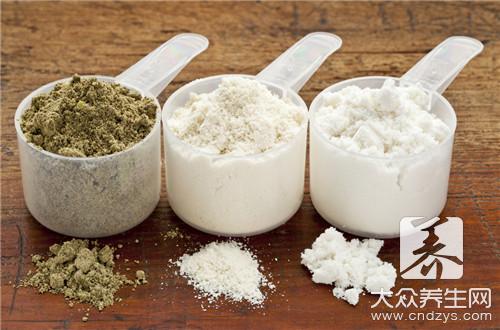Key Highlights
- Consumer Reports found high levels of lead in 23 protein powders and shakes.
- The average level of lead was higher than previous tests conducted 15 years ago.
- About two-thirds of the products analyzed contained more lead than what is considered safe to consume daily.
- Plant-based proteins had significantly higher lead levels compared to dairy and beef protein powders.
Lead Contamination in Protein Powders: A Growing Concern
A new investigation by Consumer Reports has revealed concerning levels of lead in widely consumed protein powders and shakes. The study, which tested 23 products from various brands, found that more than two-thirds of them contained lead levels higher than what the organization’s food safety experts deem safe to consume daily.
Industry Growth and Health Risks
The protein supplement industry has seen a significant boom over the past decade. This surge in popularity has led to an increase in both the variety and consumption of these products, making the issue of heavy metal contamination more pressing than ever before. While many consumers view protein powders as essential for muscle growth or weight management, the findings highlight potential risks that come with their daily use.
“It’s concerning that these results are even worse than the last time we tested,” said Tunde Akinleye, a chemist and food safety researcher at Consumer Reports. “The average level of lead was higher, and there were fewer products with undetectable amounts.”
The lead levels in plant-based protein powders were nine times greater on average than those found in dairy-based proteins like whey, further raising concerns about the safety of these products.
Expert Recommendations and Industry Responses
Consumer Reports advises against daily use for most protein powders due to high heavy metal contamination. Only a few plant-based options are recommended to be consumed once a week at most, while others can be eaten occasionally. However, experts stress that the average American already gets sufficient protein through their diet.
Nicholas Burd, PhD, from the University of Illinois Urbana-Champaign, warned, “When you fortify your diet with supplements, you’re putting yourself at greater risk.”
Some companies responded to the findings.
Huel stated that they are reviewing their sourcing and production processes in light of these results. Meanwhile, Naked Nutrition informed CR that they have discontinued two of the problematic products.
The Lack of Regulation and Industry Standards
Unlike prescription or over-the-counter drugs, protein supplements are not reviewed, approved, or tested by the Food and Drug Administration (FDA) before being marketed to consumers. This absence of regulation means that supplement makers do not need to prove their products’ safety nor comply with federal limits for heavy metal content.
Brian Ronholm, CR’s director of food policy, emphasized, “The FDA can take action if it finds unsafe lead levels, but the lack of enforceable standards means it doesn’t happen nearly enough.”
Ronholm further noted that funding and staffing issues at the FDA exacerbate this problem, highlighting the need for stricter regulations to protect consumers.
Conclusion
A Cautionary Note
The findings from Consumer Reports underscore the importance of consumer awareness regarding the potential health risks associated with protein powders. While occasional use may not pose an immediate threat, daily consumption could lead to chronic exposure, particularly in vulnerable populations such as children and pregnant women.
“For many people, there’s more to lose than you’re gaining,” said Tunde Akinleye. “Regular users of protein supplements might consider reducing their intake.”
The ongoing issue of heavy metal contamination in dietary supplements serves as a reminder that even everyday products can carry unforeseen risks. As the market continues to expand, so too must efforts to ensure consumer safety through better regulation and industry standards.

